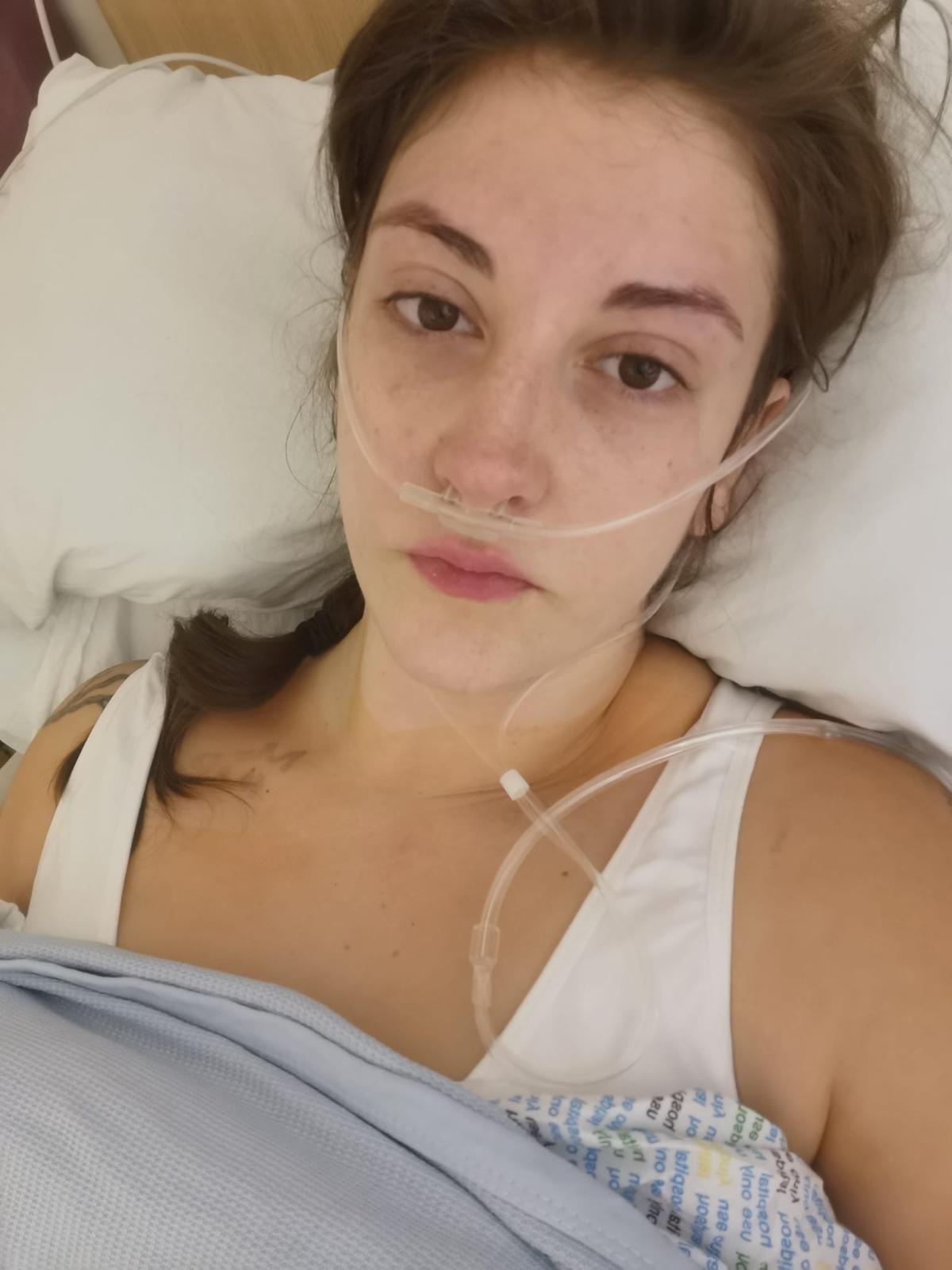I had both breasts removed so I could be here for my daughter
Lisa Bancroft felt that her positive test for the BRCA gene was a "death sentence"
- Published
Lisa Bancroft was a 27-year-old single parent when she had preventative surgery to remove both her breasts.
She is among thousands of people who have been tested for the faulty BRCA gene over the past 30 years.
The rare gene – discovered in 1994 - was found to increase the chances of developing breast and ovarian cancer.
Hollywood star Angelina Jolie notably had a double mastectomy when she discovered she had the gene.
Lisa, from Dunfermline, took the genetic test in 2019 after her father and aunt were both diagnosed with cancer. Her daughter Emma was just two at the time.
Lisa's faulty gene meant she had a 60-90% chance of developing breast cancer.
She said learning the news felt like a “death sentence”.
“My whole world crashed around me," she said. "It was really difficult, especially as I was a single parent.

Angela Jolie made headlines in 2013 when she had a double mastectomy after her mother died from cancer
She searched online, “totally scaring” herself, before reading about Jolie’s similar experience.
The Hollywood actress had a double mastectomy in 2013 to reduce her risk of cancer after her mother had died from the disease.
Lisa went through the same surgery in 2020 after some soul-searching.
She said she felt she had to have the surgery for the sake of her daughter.
"I was still breastfeeding my daughter and I had to stop," she said.
"That was a big decision, and a really hard one, as up until that point breastfeeding her was one of the things I was most proud of."
She also knew if she had other children she would be unable to breastfeed them.
Lisa said: "I knew that I needed to do it to ensure I would be around for Emma as long as I possibly could be.
“I don’t want to have to break the news to my daughter that I’ve got cancer, I don’t want to have her see me go through this.”
Lisa said she is now happy to “no longer live with anxiety” over the risk of developing breast cancer, but found it all extremely hard to process.
“You feel very out of control of your health and I think it’s really confusing when it comes, not from a cancer diagnosis, because I had in all respects a healthy body,” she said.
“It was really, really hard physically, but it was really hard emotionally. It was losing a part of yourself and losing a part of your body - that as much as it could have made me ill, it was as much part of me."

Lisa said having the surgery had made her a stronger and more confident person
Lisa is still to make a decision about her ovaries, as she also has a higher risk of developing ovarian cancer.
“I actually wouldn’t change the journey that I’ve been on because it has made me a much stronger and more confident person,” she said.
People with a genetic variant have a 50% chance of passing it on to their children.
Genetic testing through the NHS will be available to Lisa’s daughter when she turns 18.
But she hopes that continued research will mean Emma will have more options that do not involve such life-changing decisions.
Anyone can inherit the genes which can increase the risks of breast, ovarian, prostate and pancreatic cancer, external.
Around one in every 400 people have a faulty BRCA gene.
Not all of them will go on to develop cancer but some people choose to have risk-reducing surgery.
Faulty cancer gene traced back to Shetland island
- Published6 June 2024
Breast cancer gene linked to Orkney islands
- Published16 March 2023
Jewish people offered gene test for cancer risk
- Published1 February 2024
The discovery of these genes has been critical to the understanding of inherited cancers as well as developing new treatments.
Drugs that are already used in the treatment of ovarian, breast and prostate cancer, where there is a faulty BRCA gene, are being tested on a rare and deadly form of brain tumour.
Cancer Research UK funded a trial, led by the University of Glasgow, to look at the effectiveness of PARP inhibitors (a type of targeted cancer drug) as part of treatment for glioblastoma.
It is one of the most common types of brain tumours in adults, affecting up to 4,000 people a year in the UK, and has poor survival rates.
Prof Anthony Chalmers, who is leading the second phase of the trial, said a breakthrough would be “massive” as outcomes for patients were bleak.
“Everybody with this cancer essentially dies because of that tumour and the cancers in the brain also cause all kinds of problems with disabilities, memory and personality," he said.
“Like with the BRCA discovery, we hope it won’t just be brain tumour patients who benefit from this and we can apply what we learn in this particular cancer to other types of cancer.”
For Lisa, the research and potential for further ways to prevent and treat cancers following the discovery of the BRCA genes is what “brings her peace” for her daughter’s future after initially feeling “absolutely devastated”.
In Scotland, people can be referred for genetic testing after they turn 18, if they meet one of the risk criteria.
People may be referred for the test by their GP if cancer runs in their family, if a relative has a faulty gene or if they have a Jewish grandparent.
Recent research found a geographical ancestral link in Orkney and Shetland by scientists in Edinburgh and Aberdeen universities.